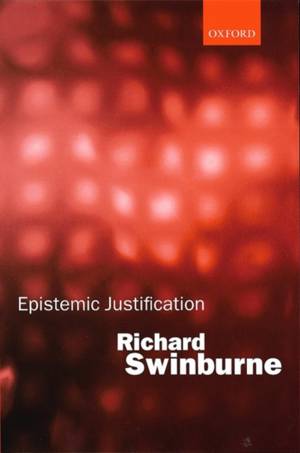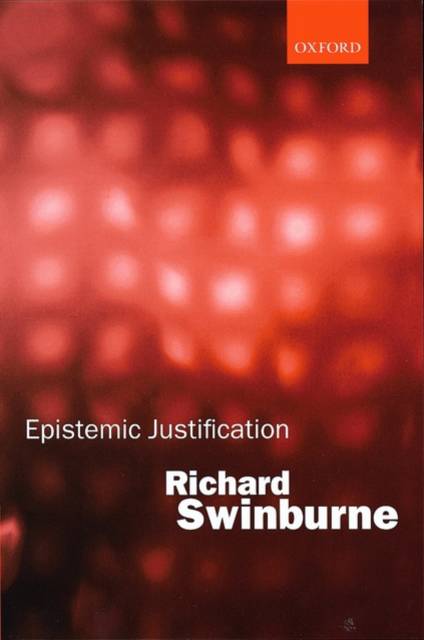
- Afhalen na 1 uur in een winkel met voorraad
- Gratis thuislevering in België vanaf € 30
- Ruim aanbod met 7 miljoen producten
- Afhalen na 1 uur in een winkel met voorraad
- Gratis thuislevering in België vanaf € 30
- Ruim aanbod met 7 miljoen producten
Zoeken
Omschrijving
Richard Swinburne offers an original treatment of a question at the heart of epistemology: what makes a belief rational, or justified in holding? He maps the rival accounts of philosophers on epistemic justification ("internalist" and "externalist"), arguing that they are really accounts of different concepts. He distinguishes between synchronic justification (justification at a time) and diachronic justification (synchronic justification resulting from adequate investigation)--both internalist and externalist. He also argues that most kinds of justification are worth having because they are indicative of truth; however, it is only justification of internalist kinds that can guide a believer's actions. Swinburne goes on to show the usefulness of the probability calculus in elucidating how empirical evidence makes beliefs probably true.
Specificaties
Betrokkenen
- Auteur(s):
- Uitgeverij:
Inhoud
- Aantal bladzijden:
- 272
- Taal:
- Engels
Eigenschappen
- Productcode (EAN):
- 9780199243792
- Verschijningsdatum:
- 25/10/2001
- Uitvoering:
- Paperback
- Formaat:
- Trade paperback (VS)
- Afmetingen:
- 226 mm x 150 mm
- Gewicht:
- 399 g

Alleen bij Standaard Boekhandel
+ 125 punten op je klantenkaart van Standaard Boekhandel
Beoordelingen
We publiceren alleen reviews die voldoen aan de voorwaarden voor reviews. Bekijk onze voorwaarden voor reviews.











